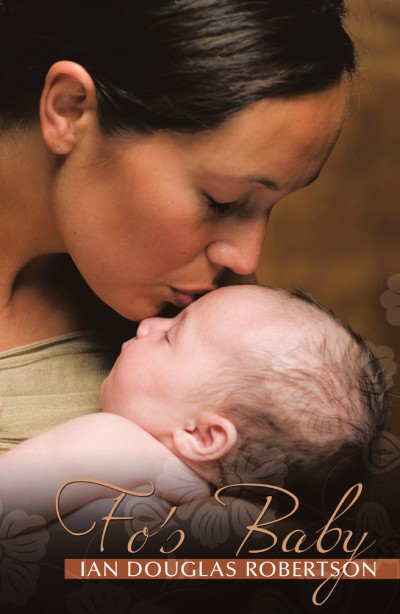
Fo’s Baby was my first published novel. I had started it just before embarking on an MA in creative writing at the University of Lancaster and completed it during that year (1999-2000).
Fo’s Baby takes place in contemporary Athens in the final year of the second millennium. The main theme of the story is a woman’s, and also a man’s, need to create and procreate. It is conjectured that creation, artistic or otherwise, is not a totally fulfilling substitute for procreation. The story is written in a conversational first person style, which tries to reflect the personality of the speakers.
The main characters of the story, ex-patriots or Greeks who speak English, are a ‘motley’ group of friends and relations, all of whom are or have been involved in some form of artistic pursuit and who, consciously or unconsciously, yearn to have a child, which is not necessarily their own. Fo, with her gentle and loving nature, becomes the mother figure for them all.
Fo is in a relationship with Dina, a militant and occasionally aggressive feminist. Fo’s best friend is Brendan, an eccentric Irishman, who dabbles in poetry, getting by teaching English and playing the piano at a local bar. Her other close friends are Makis and Themis, a gay couple, who have set up a bar together. Makis is an actor and Themis a lawyer. Prominent in her life is Goni, her Greek mother, who years ago gave up a promising career as an actress to be with her talented but philandering husband, Tony, an English stage director and playwright of Irish origin. Goni’s best friend is the bubbly Betsy, a romantic novelist, who has a small but loyal readership.
The stories of each of the main characters are broken up into interspersed text bites, which form a linear recounting of the main and secondary narratives. The principal character is Fo, an Irish-Greek, brought up in London, but now living and working in Athens. At the age of 39, she is desperate to have a child. Initially, her partner, Dina, is against it, afraid that a child will come between them. However, worried that Fo will waste away if she doesn’t have a child, Dina finally gives in.
Considering a sperm bank too clinical, they decide Fo should be impregnated by some anonymous male, preferably a tourist, who will be ignorant of the fact that he has spawned a child. After their first attempt, which ends in an embarrassing debacle with two men from out of town, they abandon this idea. After further discord, they ask Brendan if he would donate his sperm. He initially refuses, though he admits he quite likes the idea of having a child. Finally, he agrees, out of love for Fo. However, this too fails, mainly because he is afraid of becoming too attached to the child that might result.
Finally, Brendan persuades one of his students, Theo, a budding bank clerk, to sleep with Fo. He makes up a story about Fo being on her deathbed and needing someone to provide her with succor in her final days. Theo is hesitant but has seen Fo at a distance and quite fancies her. So, he agrees to meet her. Because of their age difference and Theo’s conventional ideas, Brendan feels there is no danger of his becoming emotionally attached to Fo or even wanting to have anything to do with the child after it is born. This is typical of Brendan and Fo’s naivety. The introductions are made during a group outing to the seaside. Fo and Theo hit it off immediately and end up playing with a little boy on the sand. From a distance they look like a happy conventional family. This leads to Dina’s first display of jealousy.
So, why did I write Fo’s Baby, given that I am neither gay nor female? First of all, I saw it as a challenge. Motivation for a lot of my writing is a desire to understand. By delving into the issue of creation and procreation, I hoped to understand the burning desire/need of some people, particularly women, to have children. I tried to put myself in Fo’s position – not an easy thing to do – and to understand her maternal instincts. Some people discouraged me from writing on such a theme but I persevered and I believe I gained a lot from it, even if some might think I haven’t fully grasped what Fo went through. However, a writer is frequently put in a situation where he or she has to imagine emotions he or she has never felt. I believe my training and experience as an actor has helped me in this regard.
Fo’s Baby is in many ways a comedy. At least I have tried to bring out the comic elements as far as possible. However, it is also a tragedy. How easy is it for a man to donate his sperm and give up any contact with his child? I was criticized for demonizing Theo but I tried to understand his anger at being denied access to what was essentially his child.
A lot has happened since 2000 – the world has become more enlightened – but I believe the theme of the novel is still relevant today. I would love to know what you think.